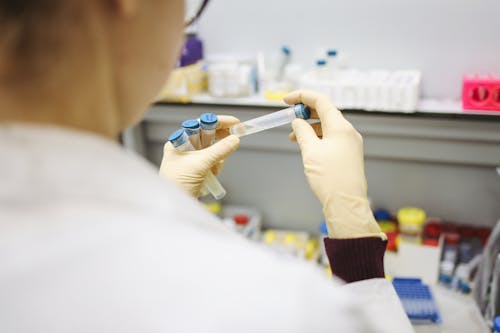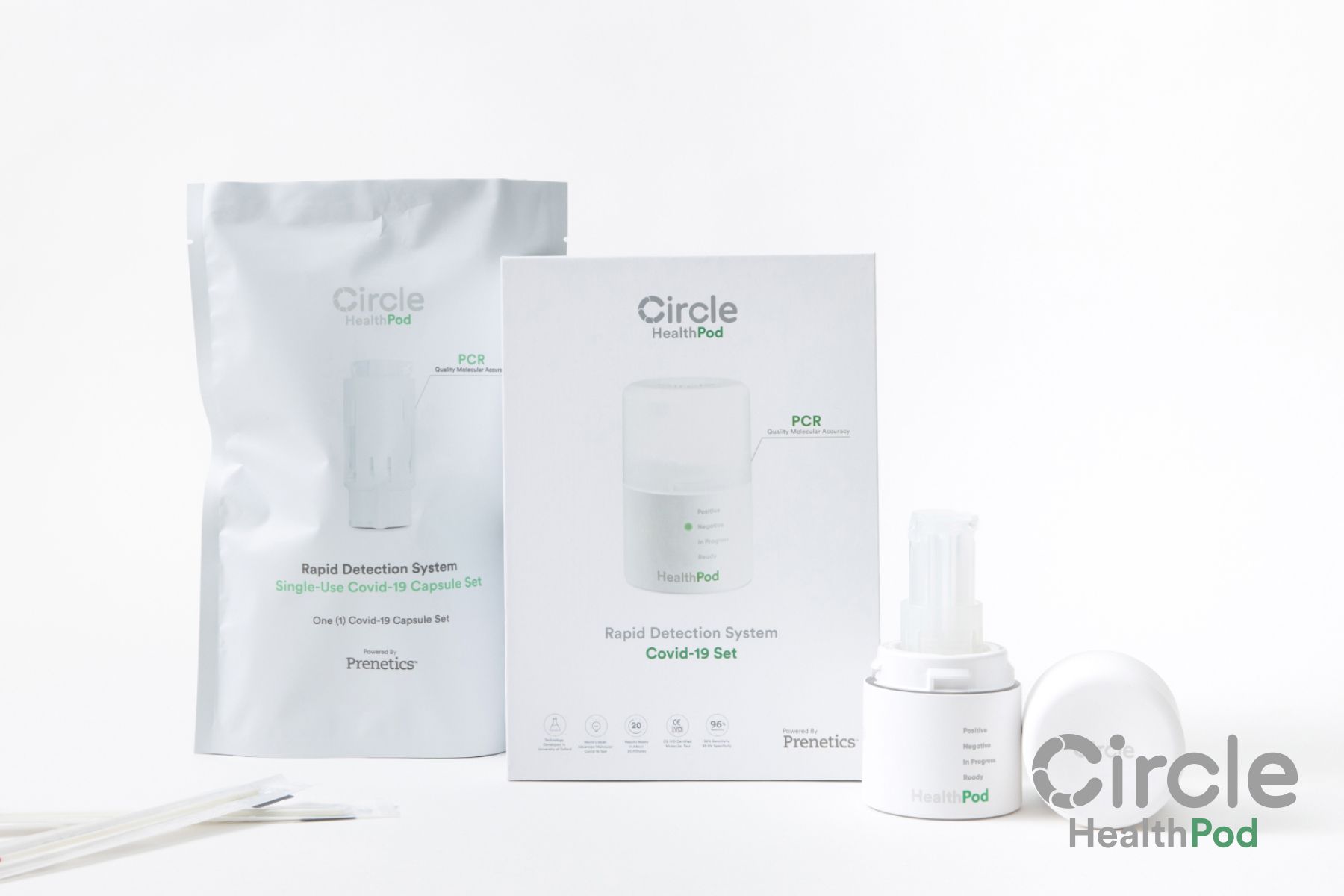
Why should you still do regular Covid tests even if you’re vaccinated? There are a number of reasons, which we’ll get into in this article. Covid has brought on a plethora of safety problems, progressions, and outcomes. We’ve seen rapid technological and medical advancements to help battle this pandemic.
As a rapidly spreading virus, Covid tests have had to be developed in order to quickly determine if someone has Covid or not to reduce the spread of the virus. This has proven especially useful when testing before or after travel, or before attending an event or family gathering.
One of the best advancements yet is the portable Covid tests that allow you to have a lab in your pocket, such as the Circle HealthPod portable Covid test. These easy-to-use portable testing devices are handy to have on hand, to check your Covid status whenever and wherever you want.
If you’re fully vaccinated and think that you won’t have any use for Covid tests, think again.
Can You Still Get Covid You’re Vaccinated?
It’s best to still get covid tests regularly, even if you’re vaccinated. The Centers for Disease Control and Prevention (CDC) reports that the hospitalisation and death risk from Covid is significantly lowered in fully vaccinated individuals.
However, it is still important to note that no vaccine is 100 percent effective.
It has been recorded that vaccinated individuals can contract Covid, albeit with milder symptoms. It is helpful to note that cases of “breakthrough infections” are rare.
When it comes to mutations and variants of this virus such as Alpha, Beta, Delta, and Gamma, the risk and severity increases.
It’s because of these variants that regular Covid tests are still conducted by vaccinated individuals, to be safe.

Should You Take Regular Covid Tests?
As Covid continues to rapidly evolve, the ways we live and fight against it have to evolve as well.
Research shows that even though the Covid vaccine isn’t 100 percent effective, it is still highly recommended to get fully vaccinated to reduce the risk of getting and spreading the virus.
Prevention is always your best bet, and we should work towards herd immunity in order to protect ourselves, the ones we love, and our community.
Besides washing your hands, keeping clean, and getting fully vaccinated, you may want to consider booster shots.
The U.S. Food and Drug Administration has authorised Pfizer booster shots, and the CDC agrees that booster shots will likely be needed.
A booster shot is a third dose of the vaccine, which many immunocompromised individuals are opting for.
We can also protect ourselves and our loved ones by doing frequent Covid testing, as this will help to detect the virus and minimise the spread of Covid.
You may be familiar with Covid tests such as the Polymerase Chain Reaction (PCR) test and Antigen Rapid Test (ART).
Every test has its pros and cons, but portable testing devices are the best way to do regular Covid tests as often as you’d like, as they are cost-effective, fast, portable, and reliable.
These portable devices are small enough to fit in your pocket, and they can provide your test results quickly. A prime example of this is the Circle HealthPod portable covid test.
What is Circle HealthPod and How Does It Differ from Other Tests?
The Circle HealthPod is currently the most advanced at-home Covid test on the market and was developed by the University of Oxford.
Although the ART test is affordable and time-savvy, it detects protein on the surface of the virus, so it can only detect Covid if you are symptomatic and if the virus is present in high concentration. This means that Covid cases can go unnoticed with ART.
The Circle HealthPod detects viral genetic material through a nasal or throat swab to determine the presence of viral genetic material whether you are symptomatic or asymptomatic, just like that of the PCR test.
Both the Circle HealthPod and PCR tests are sensitive and specific, but unlike the PCR test, each Circle HealthPod test costs less and only takes 20 minutes to produce test results compared to the PCR’s 24 hours.
The Circle HealthPod is also able to detect 99.99 per cent of known Covid mutations such as the Alpha, Beta, Delta, and Gamma variants.
It can be used in the future to detect infectious diseases like flu and STDs.
How Do Regular Covid Tests Differ from Portable Covid Tests?
Now that you know the Circle HealthPod is an easy, quick and reliable way to test for Covid, what’s next?
The Circle HealthPod device is easy to use from home and you’ll be able to do it on your own. All you need to do is use the provided nasal swab to get a nasal sample, then insert it into the Circle HealthPod device.
In 20 minutes, you’ll be able to see your test results on the device itself. You can also download the Circle HealthPod app to see your results.
Simple, right? You no longer have to travel to a clinic, wait in line, and have somebody put a nasal swab in your nostril.
Those who have had a nasal swab in their nostril before will say that it feels odd–it can make you teary, trigger a gag reflex, cause discomfort, or even slight pain. While these reactions won’t disappear when you self-administer the nasal swab, it might feel less scary and surprising when you are in control.

How Often Should I Test for Covid?
As mentioned at the beginning of this article, testing for Covid is helpful in reducing the spread of Covid in large group settings.
However, even if you’re not planning on going to a family gathering, big event, a concert, or the office, it is still wise to test yourself for Covid regularly.
The CDC advises people who have Covid symptoms to take a Covid test. Even if you don’t have symptoms, but you were in close contact with someone who has Covid, taking a Covid test within 3 – 5 days is recommended.
In highly-exposed areas, more testing may be required. The National Basketball Academy had a season in July and had no reported Covid cases during the 90-plus days where players, coaches, and staff members were put together in a protective bubble. They received Covid tests at least every other day during the week leading up to joining the bubble.
Workers in the service and healthcare industries are also required to take Covid tests regularly.
The Bottom Line
If you are exposed to someone with Covid or you typically frequent crowded areas, you may want to take Covid tests at home on a regular basis. Although you can keep a watchful eye on your situation and condition, taking regular Covid tests can act as an extra layer of protection and precaution.
Self-administering Covid tests from home is a great way to move forward as a society. Through early detection and prevention, we can stop the spread of Covid together.
This is why owning a portable Covid test such as Circle HealthPod is truly a game-changer. With a “lab in your pocket”, you’ll be able to live your life confidently and safely during the ongoing pandemic.






